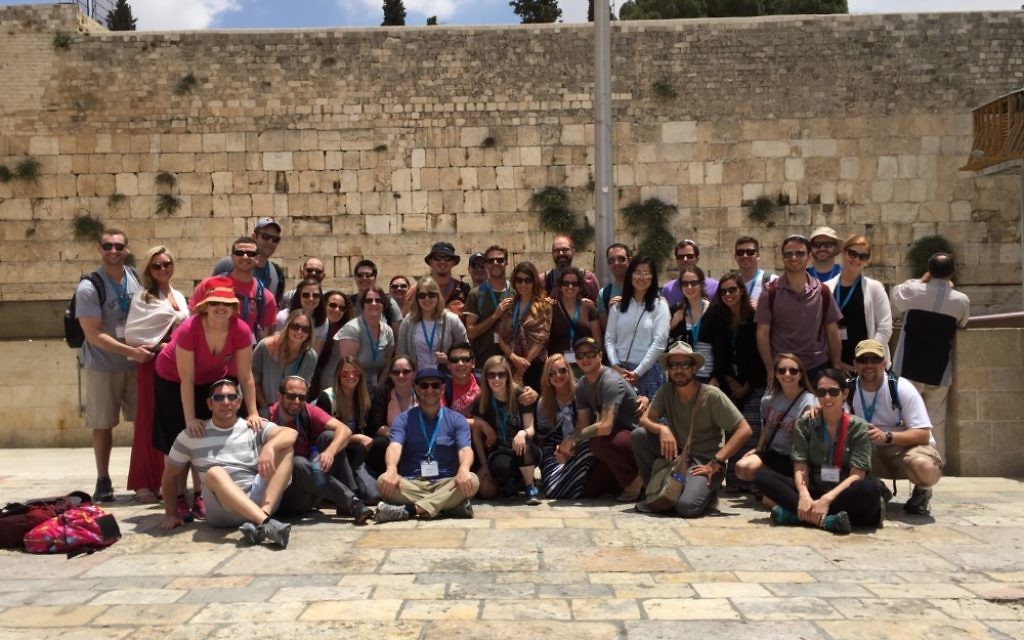The Fractured Israel-Diaspora Relationship
Undoing the compromise on mixed-gender prayer at the Western Wall puts politics ahead of Jewish unity.

It’s not a pretty analogy, but American (non-Orthodox) Jews have come to resemble an abused lover hesitant to separate from a partner who continues to show her the back of his hand.
The latest bruise was suffered when Israeli Prime Minister Benjamin Netanyahu and his Cabinet rescinded a carefully negotiated plan to permit mixed-gender prayer at the Western Wall.
Netanyahu buckled to pressure by Orthodox political parties, whose votes he needs to maintain his ruling coalition in the Knesset.
Get The AJT Newsletter by email and never miss our top stories Free Sign Up
This is the same Netanyahu who told the Jewish Federations of North America in November 2015, “As prime minister of Israel, I will always ensure that all Jews can feel at home in Israel — Reform Jews, Conservative Jews, Orthodox Jews — all Jews.”
The agreement then under negotiation “will ensure that the Kotel (Western Wall) is a source of unity for our people, not a point of division,” he said.
Events have shown that pledge to be of questionable value.
It’s as if, to borrow from George Orwell’s “Animal Farm,” all Jews are equal, but some Jews are more equal than others.
Israel’s Orthodox religious establishment revels in consigning non-Orthodox Jews to second-class status in such matters as marriage, conversion and prayer at the Western Wall.
”This decision sends a clear message to the entire world that Reform Judaism (i.e., non-Orthodox) has no access to or recognition at the Western Wall,” proclaimed Health Minister Yaakov Litzman, a leader of the United Torah Judaism party.
The June 25 Cabinet vote came on the deadline set by Israel’s High Court of Justice for the government to explain delays in implementing the January 2016 agreement to facilitate mixed-gender prayers near Robinson’s Arch, at the south end of the Wall, separated from the men-only and women-only sections by the Mughrabi Bridge, which leads onto the Temple Mount.
Nachman Shai of the Zionist Union party, who chairs the Knesset lobby for U.S.-Israel relations, diagnosed that the decision had “fractured” the relationship between Israel and American Jewry.
Netanyahu “caved to the extortion of his ultra-Orthodox coalition partners and told American Jews, in the words of the famous 1975 New York Daily News front page about Gerald Ford and a federal bailout of New York City: Drop dead,” Haaretz columnist Chemi Shalev wrote.
“It was a noble compromise: The liberal denominations accepted with humility a secondary place at the Wall, but that at least recognized their right to be part of Israel’s public space; while the Orthodox seemed to accept an organized non-Orthodox presence at the Wall for the sake of Jewish unity,” Yossi Klein Halevi wrote for The Times of Israel.
Netanyahu knows that Israelis are concerned more with security and the economy than the rights of non-Orthodox Jews.
American Jews offended by this betrayal and related slights should consider financially supporting organizations that promote equality in Israel for all Jews on matters of religion.
For many young American Jews, whose fealty to Israel is the subject of so much hand-wringing, this intolerance disparages the traditions in which they developed their Jewish identities.
After Israel regained the Western Wall in the Six-Day War in 1967, the government ceded control to Orthodox religious authorities, who mandated separation of the sexes, restricted aspects of women’s worship and banned mixed-gender prayers.
“From extensive conversations over the years with the paratroopers who were at the Wall on the morning of June 7, 1967, I know that their overwhelming sentiment was gratitude for the privilege of having restored the Wall to the Jewish people — the entire Jewish people,” said Halevi, the author of “Like Dreamers: The Story of the Israeli Paratroopers Who Reunited Jerusalem and Divided a Nation.”
The entire Jewish people — not only those living in Israel, not only the Orthodox.
There is room in Judaism to accommodate a range of beliefs and room at the Western Wall to accommodate mixed-gender prayer.
But there should be no room for political expediency when it comes to the unity of the Jewish people.




comments